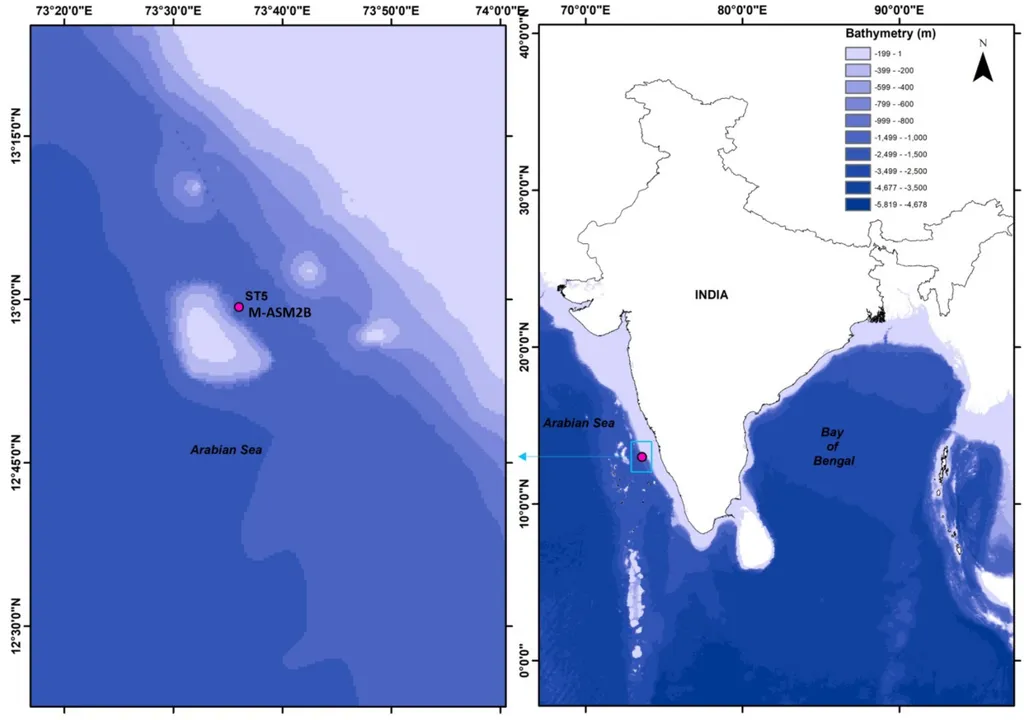In the depths of the Arabian Sea, hidden within the sediments of seamounts, lies a treasure trove of microbial diversity that could revolutionize sustainable agriculture. A recent study led by Karpaga Raja Sundari Balachandran from the Marine Biotechnology Group at the National Institute of Ocean Technology (NIOT), under the Ministry of Earth Sciences, Government of India, has uncovered the potential of these deep-sea microbes to develop next-generation plant biostimulants. The research, published in the journal ‘Scientific Reports’ (which translates to ‘Scientific Reports’ in English), offers a glimpse into the future of biotechnological applications for sustainable agriculture.
The study focused on constructing a fosmid metagenome library from the Arabian Sea seamount sediment, a process that involves capturing the genetic material of diverse microbes. “We generated about 9068 metagenomic clones with an average insert size of 38 kb,” explained Balachandran. “Out of these, 42 were found to be positive for phosphatase activity, enzymes crucial for phosphate solubilization, a key process in plant nutrition.”
The team employed a combined strategy of functional and nanopore sequence-based metagenomic screening to identify and characterize these phosphatase enzymes. Five clones with high phosphatase activity were further studied, with one clone, NIOT F41, showing the greatest specific activity for phosphatase (41.2 U/mg). The recombinant clones also produced significant amounts of organic acids, including gluconic, oxalic, and succinic acids, which are beneficial for plant growth.
Nanopore-based metagenomics sequencing generated an average of 600,786 reads, revealing an abundance of Proteobacteria and Firmicutes phyla. These phyla include well-known phosphate-solubilizing bacteria such as Pseudomonas aeruginosa, Bacillus subtilis, and Staphylococcus warneri. Functional annotation using the phosphorus cycling database (PCycDB) predicted variations in the relative abundance of phosphatase gene clusters, including alkaline and acid phosphatases.
The potential of these metagenomic clones was further demonstrated in a pot assay, where they exhibited significant positive impacts on shoot length, root length, wet biomass, and dry biomass compared to the negative control. “The advanced nanopore sequencing and functional metagenomics methods employed in this study could serve as a marine biodiversity conservation approach for deep-sea microbes hidden in sea mount sediments,” Balachandran noted.
The implications of this research are profound for the agricultural sector. By harnessing the genetic resources of deep-sea microbes, we can develop innovative plant biostimulants that enhance crop productivity and sustainability. This study not only underscores the importance of exploring and conserving marine biodiversity but also paves the way for future developments in biotechnological applications for sustainable agriculture.
As we continue to face the challenges of climate change and food security, the insights gained from this research offer a promising path forward. The commercial potential for developing next-generation plant biostimulants from deep-sea microbes is immense, with the potential to transform the agricultural landscape and contribute to a more sustainable future.

